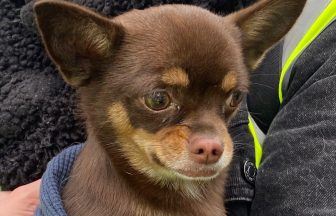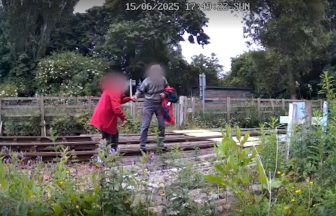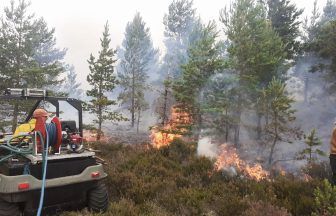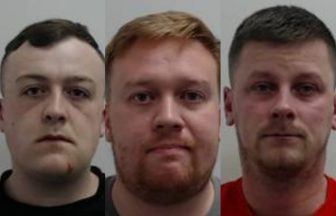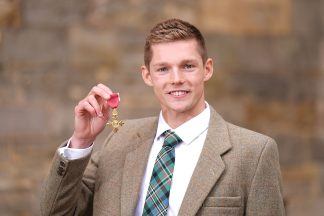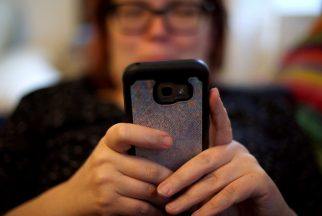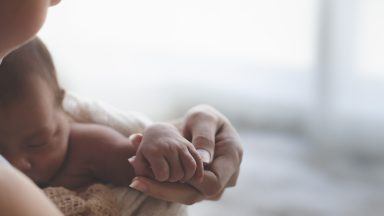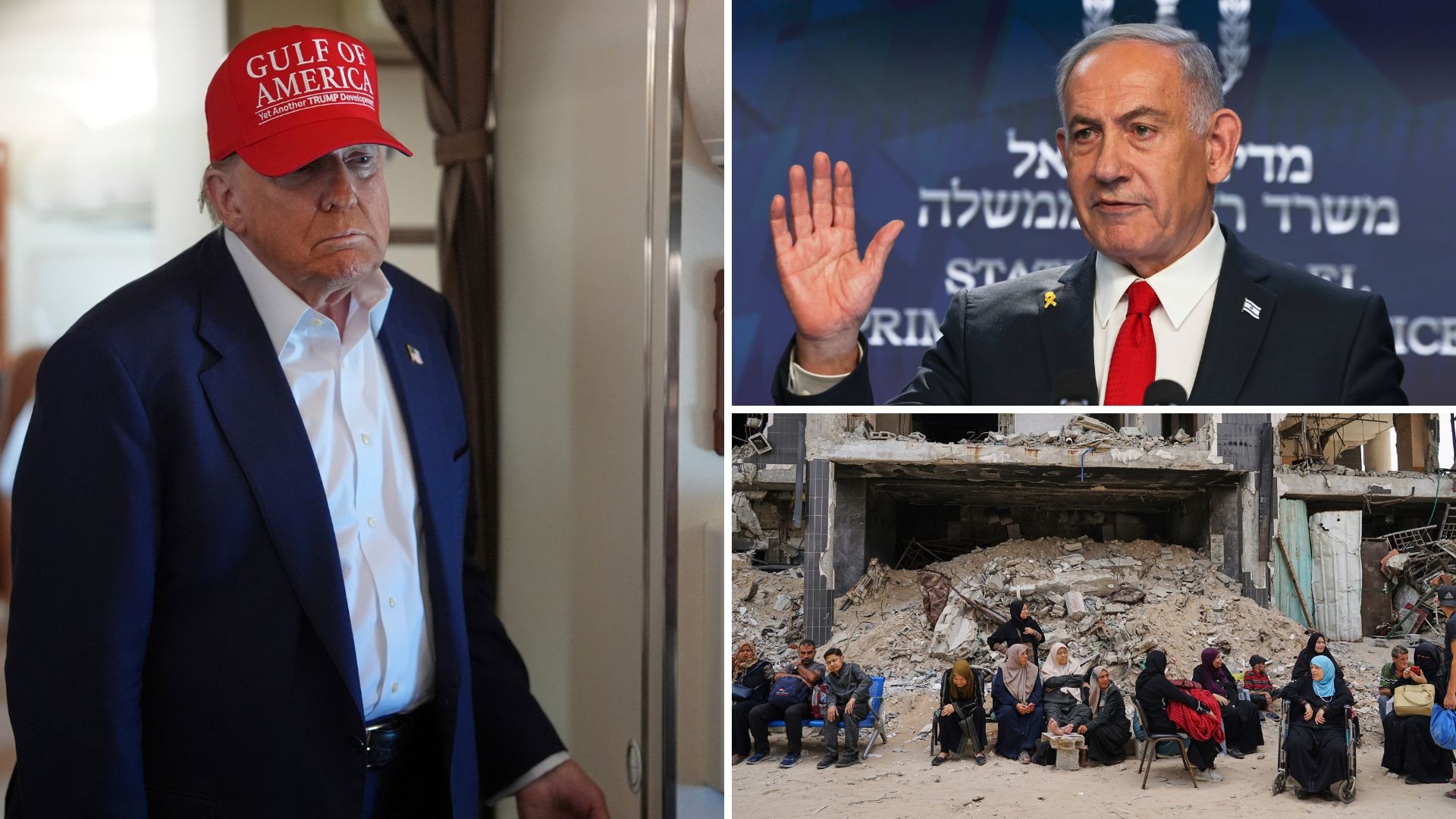I took this photograph at the end of the most remarkable interview I’ve ever carried out.
They are two friends laughing and sharing a joke. This picture gives a glimpse of the firm friendship Claudette and Jean-Claude now have.
They also share a dark and traumatic past.
Claudette is a survivor of the Rwandan genocide. She was just 13 in 1994 when she escaped a church massacre and repeated machete attacks on Tutsi residents by Hutu extremists.
Jean Claude is one of the men who left her for dead.
I met them while learning about the work carried out in that part of the world by the Scottish Catholic International Aid Fund, better known as SCIAF.
“Sometimes I think about how I managed to forgive him and I myself don’t understand it,” Claudette says. “But I talked with him many times and he talked to me. He tells me his secrets, I tell him my secrets and I feel now he is my family.”
Jean-Claude nods in agreement. “The fact that I asked for forgiveness and she forgave me, it brought back the human heart in me.”
For Claudette, to forgive is not to forget. The 38-year-old sits on a mat on the floor of her living room as she vividly tells her story of survival.
She and 11 members of her family had gone to Nyamata church, south of Kigali, as they believed it would be a place of safety for Tutsis.
All 11 members of Claudette’s family were killed.
Claudette says: ” God was there to protect me.”
Closing her eyes, she describes the horror she witnessed inside the church, how Hutus armed with guns and hand grenades surrounded the grounds, how she was next to be shot but then a soldier changed his mind and began killing those at the end of the line.
Claudette then stretches the neck of her top to reveal a deep scar on her shoulder. “This is where Claude hit me with a machete,” she says.
She met Jean Claude while hiding in the mountains after running away from the church.
Jean Claude was 26 at the time, a police officer and a Hutu. He says: “They had brainwashed us and told us that Tutsis were bad people and enemies of the country, so during the genocide we were killing every Tutsi that we met, whether they were grown or young, a woman or an old lady.”
Jean Claude remembers finding a young girl hiding behind a curtain.
He says: “Claudette had many wounds from the church where she had fled before and I added to her wounds. I left her for dead.”
Jean Claude looks me directly in the eyes as he calmly describes this attack and how he killed every Tutsi he came across. As the interpreter translated his words, I found myself searching his face for any sign of the evil he was describing. Not a trace.
An estimated 800,000 people were killed by Hutu extremists during 100 days of killing. Around 11,000 died at Nyamata. or Claudette, the attacks didn’t stop after she survived Jean Claude’s attack. Badly injured and in agony, she would tell people she was a Hutu in the hope they would let her go.
Claudette unwinds her headscarf to show me the scars that she said took many years to heal.
“Every day I thought it was the end,” Claudette recalls. “I would go around lying about where I lived so that I could spare my life. It’s something that I can’t get over. I still feel guilty that I kind of denied my parents so that I could survive.”
I visited Nyamata church, which is now a memorial site, before I found myself sitting in her small house.
Some of the remains of the dead still lie in the building where they were killed 26 years ago. Damaged skulls lie in a vault to remind people of the brutality.
Light shines through the bullet holes left in the metal roof. On the pews, piles and piles of clothes and belongings have been preserved. They belonged to those who were slaughtered here.
My eyes were drawn to a tiny knitted green hat and booties, next to them a baby’s white dress.
Within the clothing, relatives have left handwritten notes. Some have also been pinned to the wall. Our guide points to one left by a woman who was orphaned. She managed to successfully complete secondary school but on that day, no-one was there to congratulate her.
Our guide reveals he was 11 years old during the genocide and remembers a city full of dead bodies. He lost many members of his own family and returned every day to show others around this memorial.
They included many of the perpetrators who have been freed from prison and now willing to show where they dumped those they killed.
Coffins lie inside the church containing some of these remains waiting to be laid to rest.
After the killings came to end, Jean Claude fled to the Democratic Republic of Congo and returned two years later.
He was reconciled with Claudette as part of Rwanda’s community courts, known as gacaca, which were designed to speed up the prosecution of hundreds of thousands of genocide suspects awaiting trial.
Jean Claude was given community work instead of prison and completed this programme in 2015.
He explains: “They taught us that we have to go back to where we used to live that we have to tell what we did and ask for forgiveness and give the true information about what we did.”
Jean Claude approached Claudette many times for forgiveness. On the seventh attempt, he returned to her house with his wife. Claudette allowed them inside and listened.
He says: “I asked for forgiveness but she didn’t really believe me right away. But because I knew what I did was very bad, I didn’t get tired. I kept coming to ask her for forgiveness.”
Claudette sits next to Jean Claude as he gives his account. “It isn’t difficult to hear the details of this story now but when I am sick or I don’t have anyone to talk to, that is when I remember those wounds,” she says. “It comes back and I remember I have lost everybody, but Claude is the one who comforts me. When I am sick I call on him. When he is sick, he calls on me. We are family from the heart. ”
I tell Claudette people in Scotland will find this level of forgiveness incredibly difficult to comprehend. She replies: “The day I die, God will say you have done the right thing and I will be rewarded for that. ”






